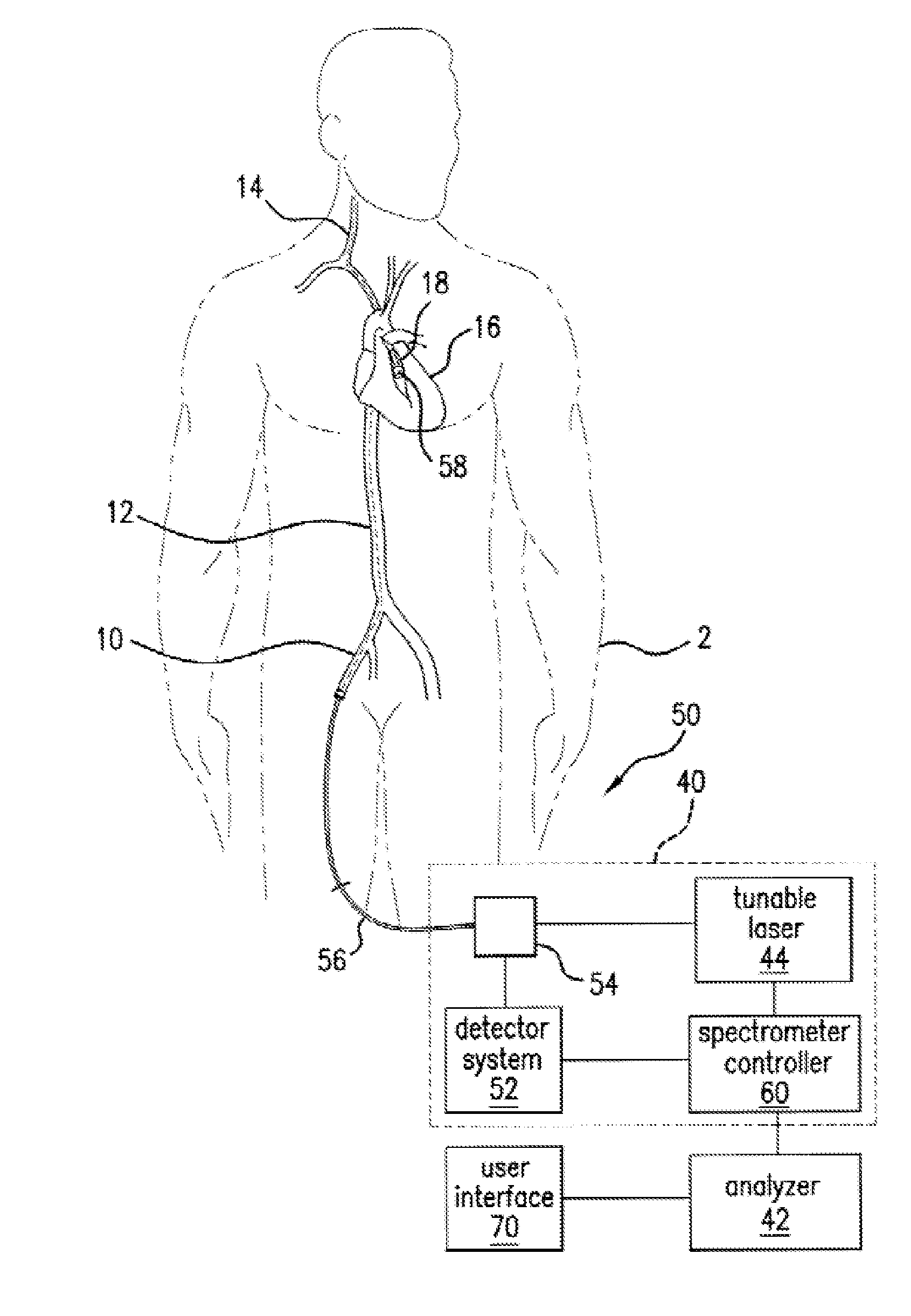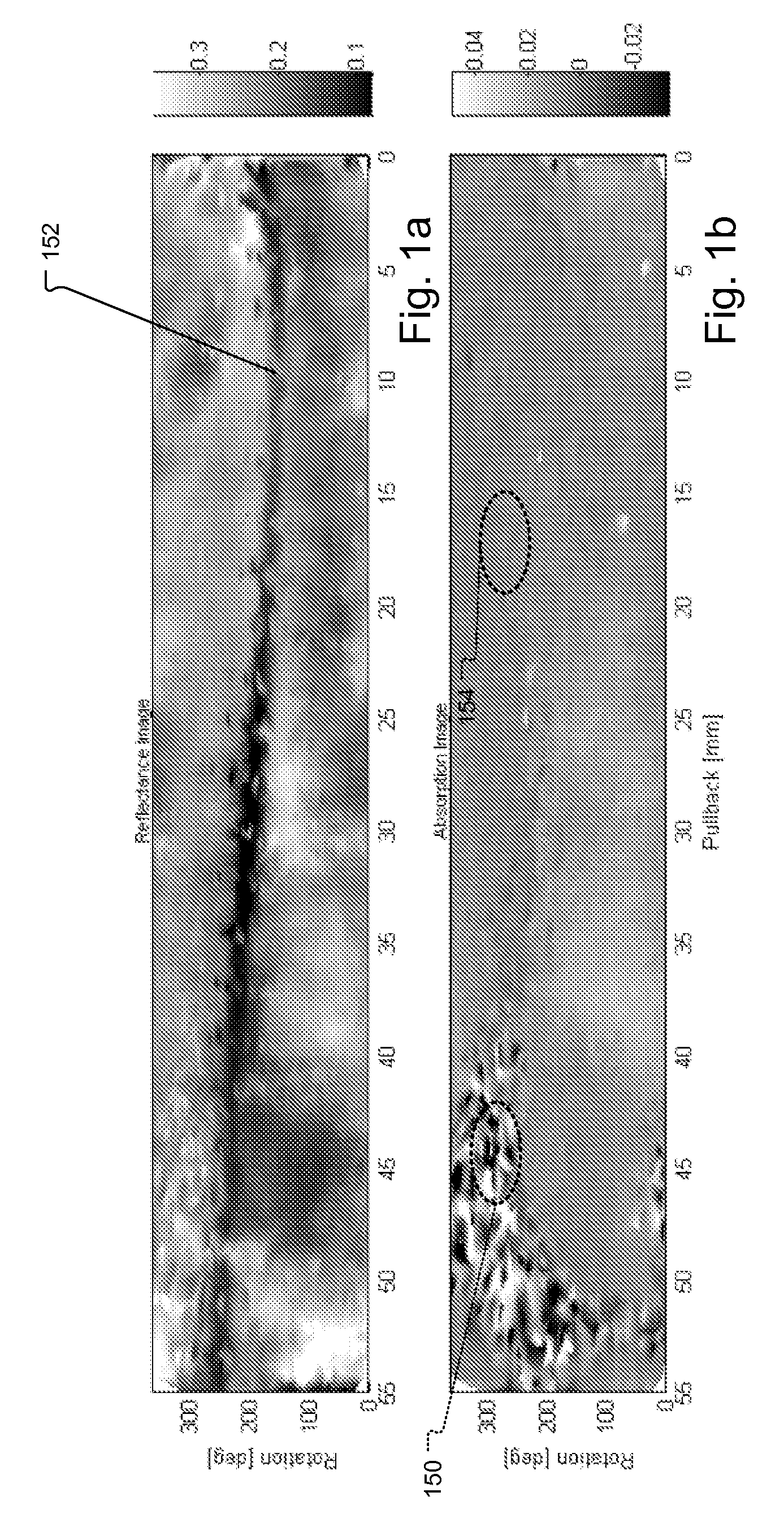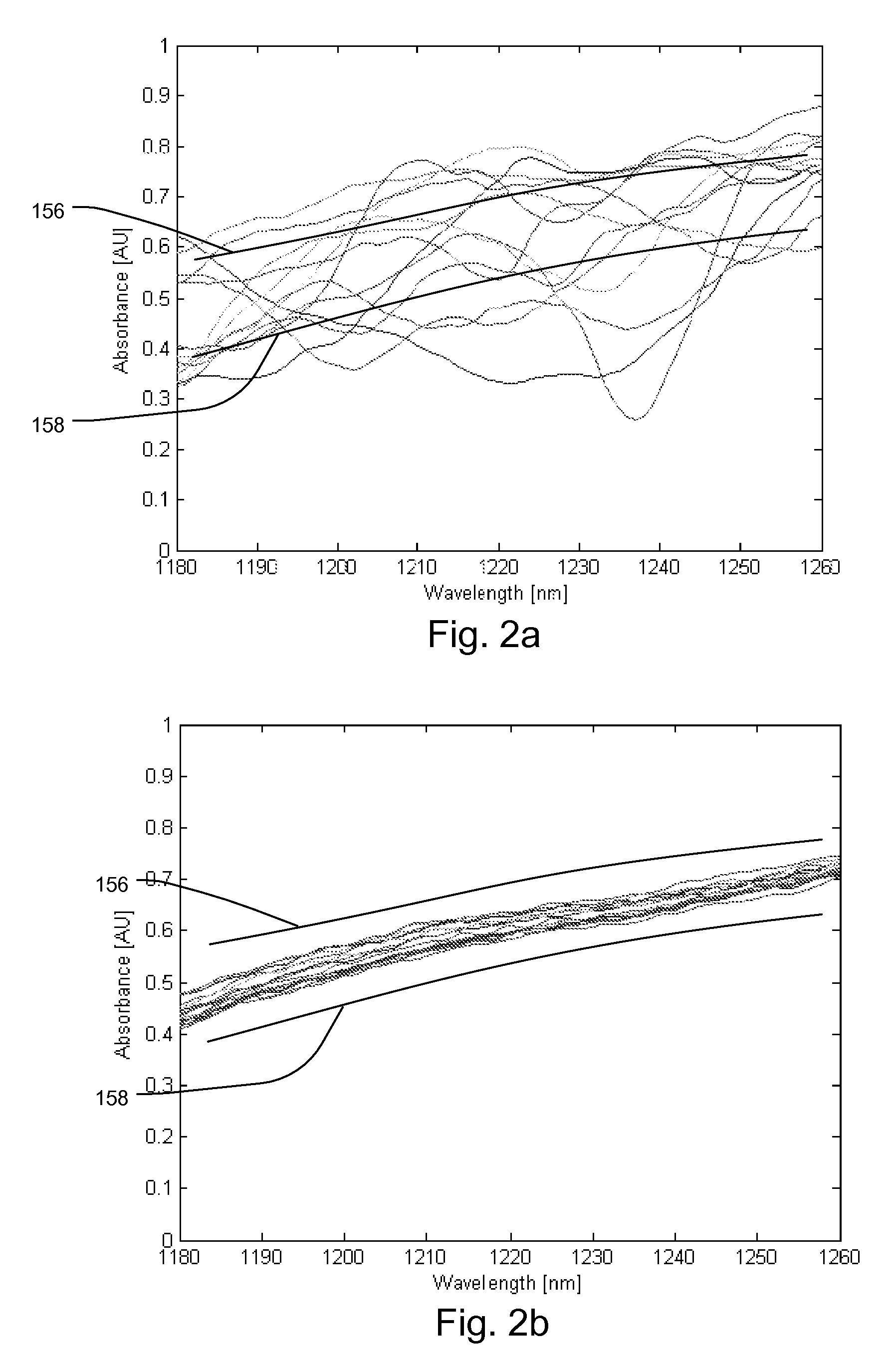Method and system for intra luminal thrombus detection
a luminal thrombus and detection method technology, applied in the field of methods and systems for intra luminal thrombus detection, can solve problems such as thrombosis formation, disruption or ruptur
- Summary
- Abstract
- Description
- Claims
- Application Information
AI Technical Summary
Benefits of technology
Problems solved by technology
Method used
Image
Examples
Embodiment Construction
[0023]FIGS. 1a and 1b show a reflectance image and an absorption image generated by the near infrared (NIR) scanning of the inside of a blood vessel. These spectral measurements were collected through flowing blood.
[0024]The guide wire 152 can be seen as a dark shadow across the mean reflectance pullback image in FIG. 1a. For this image, an average of the reflectance spectrum across the full wavelength range is taken for each pixel. Thus, each pixel in the image is the average intensity of the reflectance spectrum at that point.
[0025]FIG. 1b is notable because it shows a distinct mottled pattern in regions including region 150 in the peak absorbance image at a pull back distance of approximately 40-55 millimeters corresponding to the location of an obstruction, such as a clot or thrombus. The absorption image is referred to as “peak absorbance” because here the average of each pixel is taken across a limited wavelength range (1200-1240 nm) where lipids have a strong absorbance signa...
PUM
 Login to View More
Login to View More Abstract
Description
Claims
Application Information
 Login to View More
Login to View More - R&D
- Intellectual Property
- Life Sciences
- Materials
- Tech Scout
- Unparalleled Data Quality
- Higher Quality Content
- 60% Fewer Hallucinations
Browse by: Latest US Patents, China's latest patents, Technical Efficacy Thesaurus, Application Domain, Technology Topic, Popular Technical Reports.
© 2025 PatSnap. All rights reserved.Legal|Privacy policy|Modern Slavery Act Transparency Statement|Sitemap|About US| Contact US: help@patsnap.com



